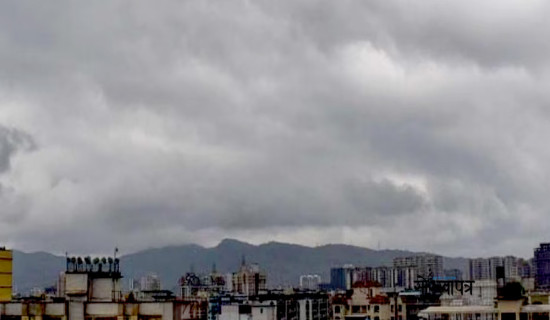- Sunday, 15 February 2026
Maoist Centre CC Meet
Rage Against Top Leadership
At the CPN-Maoist Centre ongoing central committee (CC) meeting, the leadership has come under intense pressure for reform and restructuring of the party as it is struggling to check constant decline of popular support. The CC members exercised inner-party democracy to the hilt to bring their leaders to their senses, a phenomenon that is hardly expected in another big communist party – CPN-UML - or even in the Nepali Congress that recently wrapped up its CC conclave. The participants have vented their ire and frustration over the working style of leadership and the disarray of organisation. However, they have also appreciated the Maoist-led coalition government for its bold steps to punish tainted politicians and bureaucrats involved in various corruption scandals.
It is obvious that the top leadership has an uphill task to soothe the rage of CC members and revamp the party in a way that enables it to reorganise the fragmented Maoist movement. In the first Constituent Assembly elections held in 2008, the Maoist Centre, then the CPN-Maoist, had emerged as the largest party with 229 seats in 601-member unicameral legislature but the party’s popularity began to wane in the subsequent polls. Its split into several factions further weakened its organisational base. Despite being the third small party with just 33 seats in the House of Representatives (HoR), party chair Pushpa Kamal Dahal Prachanda succeeded to lead the coalition government through his smart political manoeuvring.
Quandary
The party is facing a painful quandary at the moment. On the one hand, it has been claiming that it has spearheaded in establishing the agenda of federalism, republicanism and secularism enshrined in the constitution but on the other it continues to lose public support. This running dilemma must have pricked the leadership from top to bottom. Their disappointment has reverberated in the CC meeting held at an interval of 11 months. The CC members have raised those discrepancies that normally creep into a communist party that fails to live up to the public expectations and its leaders morph into a new class after rising to power. Such leaders befriend those parasites whom they used to deride as class foes to siphon off national resources and grab lucrative posts, perks and facilities. The top functionaries gradually keep distance from their own comrades, dashing their hope for change and improvement in their life.
The disgruntled CC members have accused the leadership of promoting nepotism and factionalism and hobnobbing with elite and comprador classes. They have demanded investigation into their property as some of their top stalwarts have also been dragged into a recent gold smuggling scam. What is more astonishing is the call for leadership change and transfer to new generation. Some CC members have insisted that leadership from the ward to centre should be elected, not selected. A few of them have dared to challenge Prachanda to get elected through open competition, stating that leadership transformation should start from Prachanda himself. This is indeed not music to ears of Prachanda, who has been in the driving seat of the party for the last 35 years.
Prachanda is not known only as a rebel leader but also a flexible one ready to compromise for immediate political expediency. He shows no compunction about ruthlessly describing the functioning of the party he is leading. Presenting his political report orally, he said: “Our party does not seem to be a party. This meeting should be utilised as historic commencement for its reorganisation.” According to him, the government has rekindled people’s hope that should be capitalised to expand the party. Prime Minister Prachanda is upbeat about the growing public support for his government’s crusade against those involved in fake Bhutanese refugee scandal, Lalita Niwas land grab scam and the smuggling of one quintal of gold.
The party has decided to launch a three-month organisation consolidation campaign from mid-August. Under ‘the party with people’ drive, it will form committees in all 6,743 wards and each ethnic front will make at least 10 per cent of its population participate in it. Prachanda has asked all committees to be digitised and announced to prepare annual time table, hold statute convention in mid-November, assign secretaries to head the provinces and send all CC members to wards. Similarly, the Maoist Centre will forge unity with the like-minded forces, create collective fund of party cadres and develop 122 local units it won as models.
Track record
These programmes sound good but it has no impressive track record when it comes to implementing the party decisions endorsed by the CC or convention. There has been yawning gap between the commitment and action. In its Hetauda Convention in 2013, the party announced to create ‘production brigade’ to involve leaders and workers in production sector. Its 8th convention organised in Kathmandu two years ago also vowed to realise this idea but it turned out to be ‘castle in the air.’ The party failed to unveil any programme related to production. Neither did the leaders go to the people to expand the organisation.
The Maoist Centre is at a crossroads. With the outcomes of last year's polls, the party has woken up to its existential crisis. Unlike in the past, when they supported whatever their core leadership decided and instructed them, this time the CC members are highly critical of it. They are demanding that the leaders stick to party ideology and ideals while mending their ways. The CC members are apparently worried about the future of the party. Party vice chair Krishna Bahadur Mahara has succinctly summed up their mood and party’s predicament in this caveat: "We have arrived at a situation whereby we have to rebuild the party or dissolve it."
(Author is Deputy Executive Editor of this daily.)
















